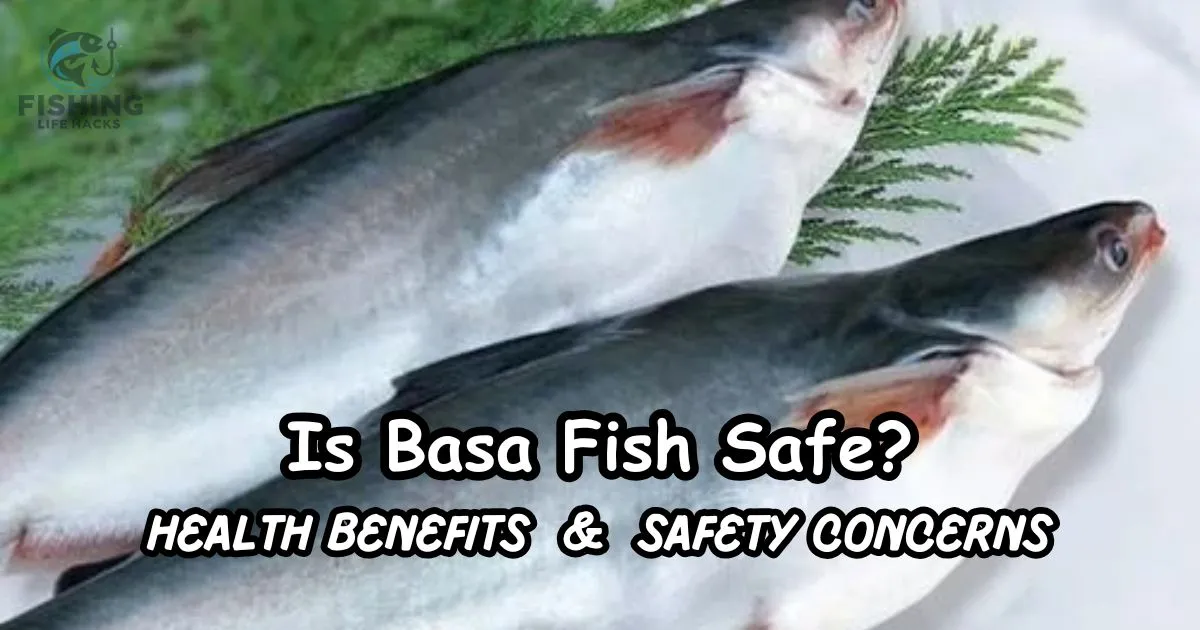Is Basa Fish Safe to Eat?

A question is in your mind Is Basa Fish Safe to Eat? Basa fish, a type of freshwater catfish commonly farmed in Southeast Asia, has sparked both curiosity and concern regarding its safety and health benefits. While it’s a popular and affordable seafood choice, questions persist about its nutritional value, potential risks, and whether it’s safe for regular consumption. In this article, we will explore the truth behind eating Basa, its health benefits, potential risks, and what you should know before adding it to your plate.
What is Basa Fish?
Basa fish, also known as Pangasius or swai, is a species native to the Mekong River Delta in Southeast Asia. It’s known for its mild flavor, white flesh, and low cost, which has made it a staple in many kitchens worldwide. Basa fish is commonly found in fillets or steaks, making it easy to cook in various dishes.
However, despite its popularity, the safety of Basa fish has been a topic of concern due to farming practices, potential contaminants, and environmental issues surrounding its production. Let’s break down the key points about Basa fish to help you make an informed decision about whether it’s safe to eat.
Health Benefits of Basa Fish
Basa fish is considered a nutritious option due to its high protein content and relatively low fat, especially when compared to other fatty fish like salmon. Some of the health benefits include:
- Heart Health: Basa contains omega-3 fatty acids, which have been linked to improved heart health. These healthy fats can help reduce inflammation, lower triglyceride levels, and promote better blood vessel function.
- Weight Management: Low in fat but high in protein, Basa fish can be a great choice for those looking to manage their weight. Protein helps keep you full longer, which can reduce overall calorie intake.
- Brain Health: The omega-3s in Basa also contribute to better cognitive function and may help in reducing the risk of dementia and Alzheimer’s disease.
These health benefits make Basa a suitable option for those looking to include more fish in their diet, especially for those who want an affordable alternative to more expensive fish like salmon.
Safety Concerns for Is Basa Fish Safe
Despite its nutritional benefits, there are some safety concerns associated with Basa fish. One of the main issues stems from the farming practices in countries like Vietnam and Thailand, where the majority of Basa is produced. These practices can sometimes include the use of chemicals, antibiotics, and other substances to boost production and prevent disease.
The environmental impact of Basa farming is also under scrutiny. As the demand for Basa grows, there are concerns about the sustainability of these farming practices, especially in terms of water quality and the impact on local ecosystems.
However, when consumed in moderation and sourced from reputable suppliers, the risks associated with Basa fish are generally minimal. To ensure the fish is safe to eat, it is recommended to buy Basa from trusted sources and ensure it has been properly inspected and handled during processing.
Pros and Cons of Eating Basa Fish
Pros:
- Affordable and Accessible: One of the biggest selling points of Basa is its price. It’s much more affordable than other fish, making it a viable option for people on a budget.
- Nutritional Value: Basa is low in fat, high in protein, and contains omega-3 fatty acids, which are beneficial for heart and brain health.
- Versatile in Cooking: Basa can be prepared in a variety of ways—baked, grilled, fried, or even incorporated into curries and soups.
Cons:
- Potential Chemical Exposure: Some Basa fish may contain residues from antibiotics or chemicals used in farming.
- Sustainability Issues: The environmental impact of Basa farming practices, such as overfishing and water pollution, raises concerns about the sustainability of this fish.
- Mild Flavor: While this is subjective, some people may not enjoy Basa’s mild taste, especially if they are used to stronger-flavored fish like salmon or mackerel.
How to Safely Enjoy Basa Fish
If you’re concerned about the safety of Basa fish but still want to include it in your diet, there are a few steps you can take to minimize any risks:
- Source Carefully: Purchase Basa from reputable sellers who can provide information about their sourcing and farming practices.
- Check for Certification: Look for certification labels that ensure the fish has been farmed sustainably and without harmful chemicals.
- Moderation: Like all seafood, Basa should be eaten in moderation. Avoid consuming large quantities of fish with known environmental or chemical concerns.
Frequently Asked Questions
Conclusion
Basa fish is generally safe to eat, offering a number of health benefits, including supporting heart and brain health. However, it’s essential to be aware of the potential risks related to farming practices and sustainability. By sourcing Basa from trusted suppliers and consuming it as part of a balanced diet, you can enjoy this affordable and nutritious fish without much concern.






